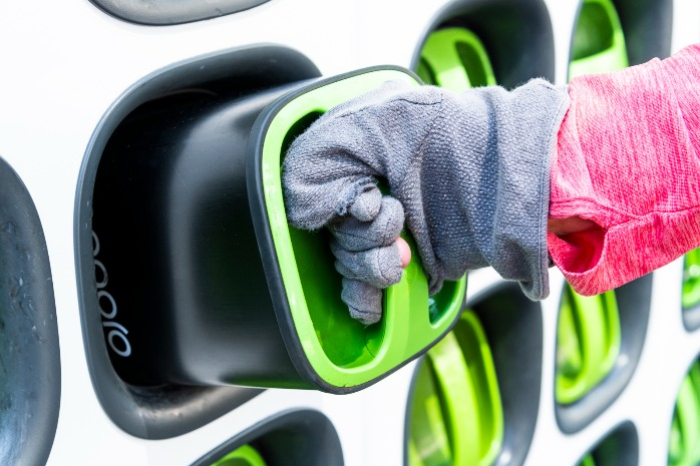Batteries
Falling mineral prices to hit Korean battery materials makers
The companies' sales will contract as lithium and nickel prices continue their decline in August, experts say
By Aug 14, 2023 (Gmt+09:00)
2
Min read
Most Read
LG Chem to sell water filter business to Glenwood PE for $692 million


Kyobo Life poised to buy Japan’s SBI Group-owned savings bank


KT&G eyes overseas M&A after rejecting activist fund's offer


StockX in merger talks with Naver’s online reseller Kream


Mirae Asset to be named Korea Post’s core real estate fund operator



South Korean battery materials makers are likely to report worsened profitability in the third quarter of this year as prices of lithium hydroxide and nickel, key battery cell components, are seeing a steeper decline this month. The prices continue to fall as battery inventories increase amid sluggish demand for global electric vehicles, experts say.
Lithium hydroxide’s one-month futures contract to expire on Aug. 31 reached $36,652 per ton last Friday, plunging 14.9% from July 30, according to the London Metal Exchange (LME). The one-month future price fell 5.3% in July and is dropping at a quicker rate so far this month.
The three-month futures price of nickel to expire on Nov. 10 closed at $20,241 per ton last Friday, down 9.5% from the first day of this month. The drop offset a 9.5% rise in the whole month of July.
Korean battery makers’ main products are lithium-ion battery cells that employ cathodes with more than 90% nickel. The fall in nickel and lithium hydroxide prices will lower the cell materials maker’s profitability as the companies reflect the cost fluctuations in their delivery prices for battery makers.
Some battery components makers are likely to see losses for two consecutive quarters in the July-September period as they bought the materials at high prices early this year.
L&F Co., global EV leader Tesla Inc.’s battery materials supplier, missed earnings estimates in the second quarter on sluggish product prices. EcoPro Co. the world’s leading cathodes maker, also lagged second-quarter earnings estimate due to falling battery materials prices.
The price of lithium carbonate, a battery component mainly used by Chinese EVs, declined 13.9% to 252 yuan ($34.7) per kilogram between July 20 and Aug. 11 as EV sales growth has slowed in China and globally.
The plunges in lithium carbonate and lithium hydroxide prices are driven by oversupply from around 50 Chinese battery materials makers, experts say. According to Chinese media outlet Gelonghui, the local battery component companies aim for a combined 4,800 gigawatt-hour yearly battery production capacity in 2025, four times the country’s demand.
(Updated with the lithium carbonate price)
Write to Hyung-Kyu Kim at khk@hankyung.com
Jihyun Kim edited this article.
More to Read
-
 BatteriesBattery recycling firms aim for 90% lithium recovery rates
BatteriesBattery recycling firms aim for 90% lithium recovery ratesJul 31, 2023 (Gmt+09:00)
4 Min read -

-
 BatteriesPOSCO breaks ground on lithium hydroxide plant in S.Korea
BatteriesPOSCO breaks ground on lithium hydroxide plant in S.KoreaJun 13, 2023 (Gmt+09:00)
2 Min read
Comment 0
LOG IN


